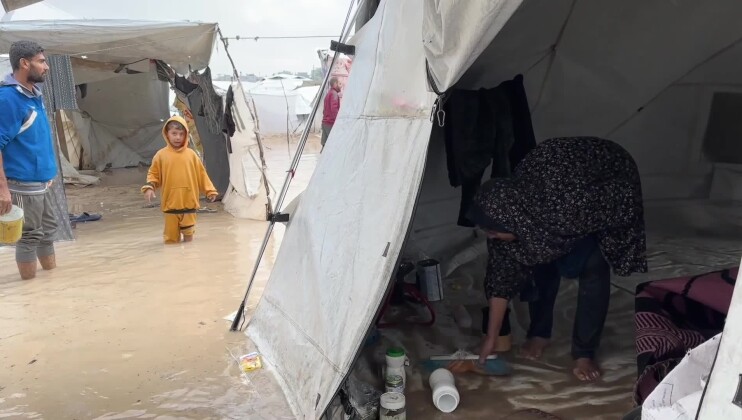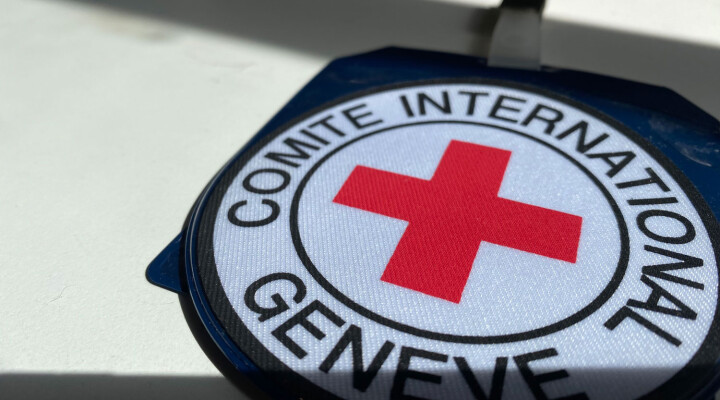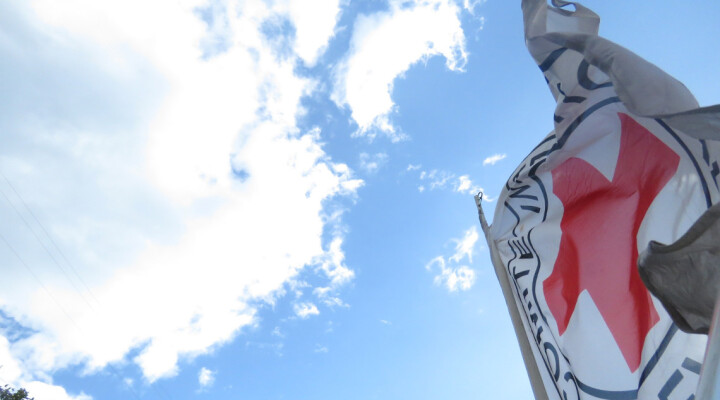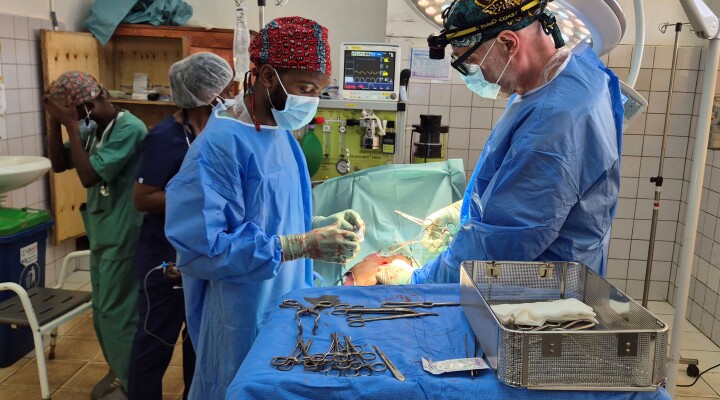Sudan: Floods destroy homes, infrastructure and worsen food crisis
Following heavy rains and flash floods in Sudan, tens of thousands of homes, boreholes and agricultural fields have been destroyed or damaged over the past months. 80,000 families need humanitarian assistance estimates the Sudanese Red Crescent (SRCS).
“It is the first time this is so bad. The water came through the windows and reached as high as 1.5 meters,” says Ismail Daoud Abbas, from Um Zaiedd village in South Darfur. Abbas’ family now lives in a makeshift shelter after their home was destroyed.
The floods have damaged essential infrastructure, increasing the risk of waterborne diseases such as cholera. “The water came under the control room and the borehole collapsed, and all the water pipes broke. Now, nobody drinks clean water because of the damage. Only polluted water is available,” says Attahir Mohammed Jabari, a community leader in Um Zaiedd.
The flooding of agricultural fields has increased the threat of hunger for millions of people. “All the agricultural fields were flooded. Our boreholes are damaged. Our mango and guava trees have also been affected,” says Ismail Daoud Abbas.
Communities facing not only climate shocks but also conflict and violence face poor harvests and skyrocketing food prices. Over the past year, the International Committee of the Red Cross (ICRC) has recorded an 187% increase in the price of basic food items in conflict-affected areas of Sudan where it works. This brutal inflation is still rising.
“This season is different from the past seasons. Our oldest people say that nothing like this has happened since the ‘80s,” said Murtada Adam Fadul, the head of SRCS branch in Nyala, South Darfur.
The ICRC with support of SRCS plans to provide essential households items and cash to some 45’600 people by end of October. In September 9’600 people in Kass and South Jebel Marra already received essential items. The two organizations are also working to improve access to clean water for 30,000 people, out of which 70% are women and children. They promote hygiene among the affected communities and provide medical supplies for the treatment of waterborne diseases and malaria.
SHOTLIST
Length: 5’33’’
Location: South Darfur, Sudan
Date of Filming: 19th,20th September 2022
Camera: Alyona Synenko
Copyright: ICRC access all
On Screen Credit: ICRC written or logo
00:00 - 00:21
The road leading from Nyala, the capital of South Darfur region, to Um Zaiedd village. The wadi was flooded after the heavy rains.
00:22 - 00:31
The view of Um Zaiedd village after heavy rains.
00:32 – 00:49
Muadah Ali Mohammed, Um Zaiedd resident, enters her house recently flooded.
SOUNDBITE Muadah Ali Mohammed, Um Zaiedd resident in Arabic
00:50 - 01:01
We have been seriously affected. My rooms, my house was damaged. All the furniture was damaged and carried away by water. This room is now completely destroyed.
01:02 - 01:15
Yesterday, that water came inside the house, it broke everything and now I have many cracks in the walls. All my beds are broken, and all my jerry cans have been carried away by the flow. I didn’t manage to recover anything. And now we sit in the water.
01:15 - 01:20
I didn’t manage to recover anything. And now we sit in the water.
01:00 - 01:48
Muadah Ali Mohammed’s family washing dishes outside their house.
01:48 – 01.59
Houses destroyed by the flood.
2:00 – 02:09
Earth drying up after the flood.
SOUNDBITE Attahir Mohammed Jabari, community leader in Um Zaiedd
02:09 - 02:14
The water came under the control room and the borehole collapsed, and all the water pipes were broken. All the pipes serving this side and that side, going south, north, and east.
02:19 - 02:22
Now this is how the borehole looks. The soil slid from under the structure. The borehole is now totally damaged and needs urgent maintenance.
02:22 - 02:26
Now, nobody drinks clean water because of the damage only polluted water is available.
2:26 – 02:36
Um Zaiedd resident, whose house was destroyed by the flood, walking out of a shelter.
SOUNDBITE Ismail Daoud Abbas, Um Zaiedd resident displaced by the flood in Arabic
02:37 - 02:48
We couldn’t stay in our homes and bear the floods/water. We had to find a safe area to move to for me and my kids.
02:48 - 02:54
So we had to move here for now, and you can see for yourself the situation in which we are.
02:54 - 03:07
So now we are here, in this very basic shelter even plastic sheets we received were not enough. This is all what people can get now. And we don’t know what to do. We lost everything and this is where we are staying now.
03:07-03:22
It is the first time this is so bad. This flood is very bad. The water came through the windows.
It came through the windows and reached as high as 1.5 meters. It is a big problem.
03:22 – 03.49
Houses destroyed by the flood.
SOUNDBITE Ismail Daoud Abbas, Um Zaiedd resident displaced by the flood in Arabic
03:50-04:10
All the agricultural fields were flooded. And all our boreholes damaged. Our mango and guava trees have also been affected.
04:11 - 04:18
The view of Um Zaiedd village after heavy rains.
04:19 - 04:28
The view of Um Zaiedd market.
SOUNDBITE Saeed Ahmed Mohammed, market trader in Um Zaiedd village in Arabic
04:29-04:50
The water came inside the store. It damaged all the merchandise I had, salt, sugar, sorghum. Everything that was on the ground was spoiled. Besides, all the things that my neighbors kept in my store, salt, millet, soap, sugar. Even the roof was damaged.
4:50 – 05:02
The road leading from Nyala, the capital of South Darfur region, to Um Zaiedd village. The wadi was flooded after the heavy rains.
SOUNDBITE Murtada Adam Fadul, South Darfur Branch director of the South Sudan Red Crescent Society in Arabic
05:02-05:06
This season is different from the past seasons.
05:06-5:13
Our oldest people say that nothing like this happened since the 80s.
05:13-05:25
This year there is much more water. In southern Darfur rain rates this fall are above the normal rates
05:25-05:33
We plan with the support of the ICRC to help the affected communities. We have been promoting hygiene and visited some of the houses.
Ends
For further information, please contact:
Alyona Synenko (English/French/Spanish/Russian), ICRC Nairobi, +254 716 987 265, asynenko@icrc.org



